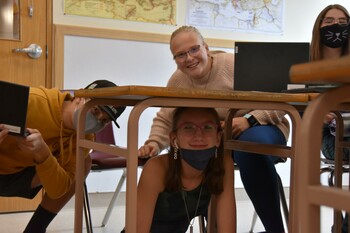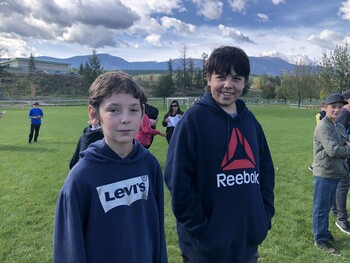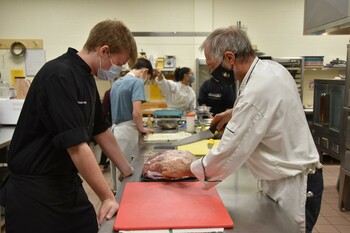The Applied Design, Skills, and Technologies curriculum builds on students' natural curiosity, inventiveness, and desire to create and work in practical ways. It harnesses the power of learning by doing, and provides the challenging fun that inspires students to dig deeper, work with big ideas, and adapt to a changing world. It provides learning opportunities through which students can discover their interests in practical and purposeful ways.
Applied Design, Skills, and Technologies includes skills and concepts from the disciplines of Business Education, Home Economics, Information Technology, and Technology Education, as well as rich opportunities for cross-curricular work and space for new and emerging areas, such as Media Arts.
Business Education builds an understanding of business skills and concepts in the context of current technology, ethical standards, and an increasingly global economy, empowering students with economic, financial, consumer, and communication skills for lifelong participation in local and global contexts.
Home Economics focuses on fundamental needs and practical concerns of individuals and families in a changing and challenging world, It integrates knowledge, processes, and practical skills from multiple areas, including foods, textiles, and family studies, and provides opportunities for creative applications and critical examination from global citizenship perspectives.
Information Technology encompasses evolving processes, systems, and tools for creating, storing, retrieving, and modifying information. As students design, share, and adapt knowledge in critical, ethical, purposeful, and innovative ways, they gain perspective on the long-term implications of life in a digital, connected world and develop literacies to responsibly take ownership of such technologies to augment learning and benefit society.
Technology Education involves students in the design and fabrication of objects using a variety of materials, methods, technologies, and tools in order to develop their ability to shape and change the physical world to meet human needs. It may include woodwork, metalwork, electronics, drafting, automotive technology, power mechanics, and robotics.
Using creative and critical thinking, students can work collaboratively to problem find and solve by exploring materials, using tools and equipment, designing and building, developing processes, and communicating the merits of their work. They can learn to critically evaluate the appropriateness of the products they develop and those developed by others. As they explore the role of culture, including local Aboriginal cultures, in the development of practical and innovative solutions to human needs, they can develop a sense of personal and social responsibility for the products they use and develop, and their effects on individuals, communities, and the environment, now and in the future.
Learning in Applied Design, Skills, and Technologies provides firm foundations for lifelong learning and, for some, specialized study and a diverse range of careers. It develops well-rounded citizens who are informed creators and consumers. It fosters the development of future problem solvers, innovators, and skilled tradespeople who can contribute to solving problems not yet anticipated with processes and technologies not yet imagined in order to improve their lives, the lives of others, and the environment.






